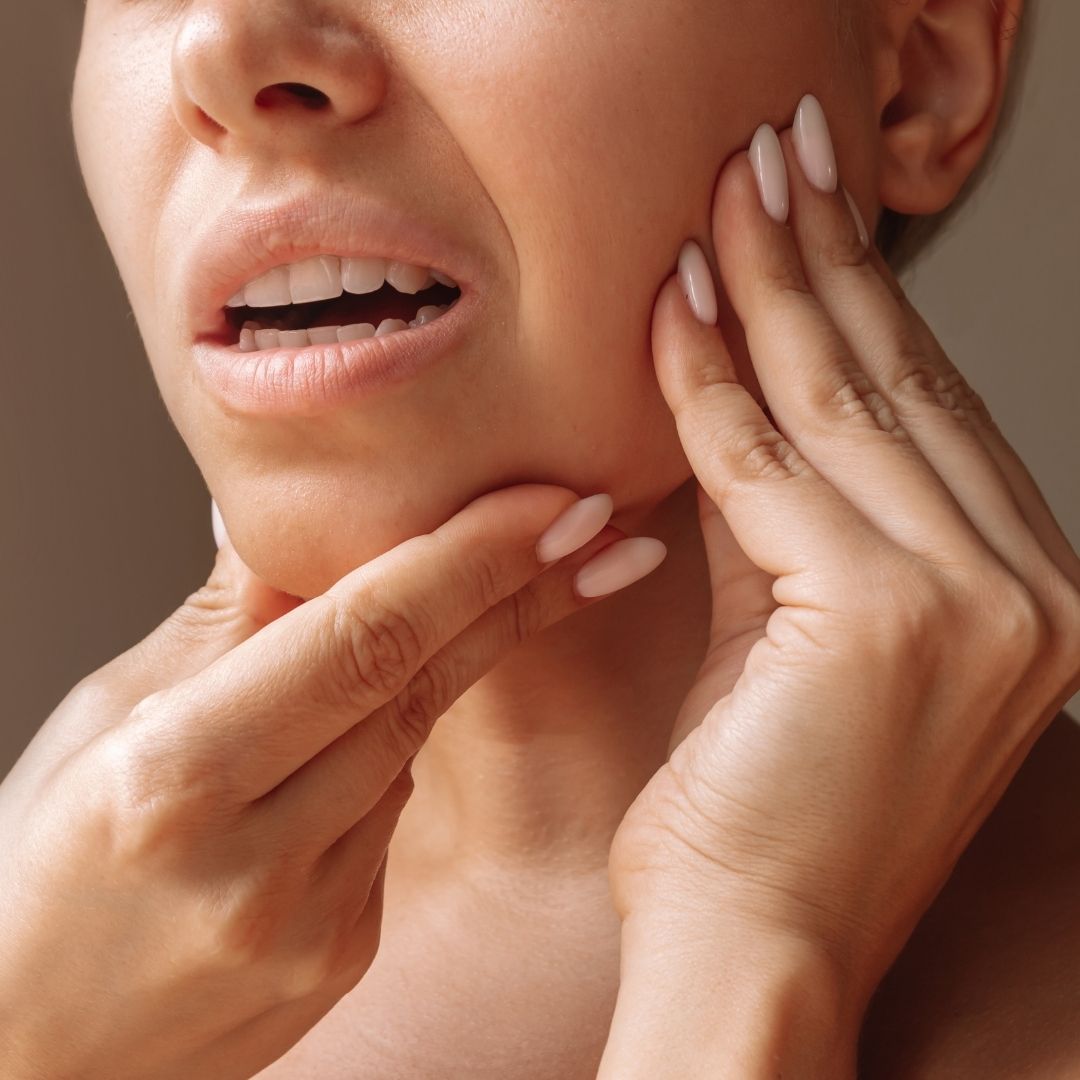
concerned with
teeth grinding
Teeth grinding, also known as bruxism, can lead to jaw tension, facial pain, worn-down teeth, and even headaches. It often occurs unconsciously, especially during sleep, and may be linked to stress, muscle overactivity, or jaw misalignment. At Dr Hadges Medical Aesthetics, we offer a safe, medically guided solution to help reduce grinding and its impact, all while maintaining a natural facial appearance and function.
Bruxism
treatment options
Targeted treatment of the overactive jaw muscles (typically the masseters) to reduce clenching, relieve tension, and protect the teeth — with a softening effect on the jawline as an added benefit for some patients.
A thorough, one-on-one consultation with Dr Hadges to assess your symptoms, lifestyle factors, and suitability for treatment.
When appropriate, we may recommend dental evaluation, stress management strategies, or multidisciplinary care to support long-term wellbeing.

Understanding Bruxism
Bruxism involves repetitive clenching or grinding of the teeth, often during sleep, and can affect both the teeth and jaw muscles over time. Common signs and symptoms include:
- Jaw tension or pain
- Headaches (especially upon waking)
- Clicking or popping jaw
- Worn-down teeth or enamel
- Enlarged masseter muscles (resulting in a square jawline)
Chronic bruxism can also contribute to TMJ (temporomandibular joint) dysfunction if left untreated.
At Dr Hadges Medical Aesthetics, our goal is to treat the root muscular overactivity while supporting your overall comfort and facial harmony, all with a light, non-invasive approach that preserves function and appearance.
TEETH GRINDING (Bruxism)
Frequently Asked Questions
Bruxism is the medical term for teeth grinding or clenching, often occurring during sleep or times of stress. It can lead to muscle pain, dental damage, and jaw discomfort.
We use precise, doctor-led muscle-relaxing treatments to reduce activity in the overworked jaw muscles — typically the masseters — helping to ease tension and protect the teeth.
Treatment typically takes 15–30 minutes and involves minimal discomfort. There’s no downtime, and you can return to normal activities straight away.
Most patients notice relief from tension or jaw discomfort within 5–10 days, with full effects developing by 2 weeks post-treatment.
Relief generally lasts 3–4 months. Repeat treatments may be needed to maintain comfort, especially for chronic bruxism.
No. Treatments are carefully placed to reduce grinding without affecting normal facial movement, chewing, or speaking. Function is fully preserved.
In some cases, reducing overactive masseter muscles may result in a slimmer lower face — a natural aesthetic benefit for those with muscle enlargement due to bruxism.
No. While results are long-lasting, bruxism may return over time. Ongoing management with maintenance treatments and lifestyle support is often recommended.
Possibly. Some patients benefit from using a night guard in combination with muscle treatment, especially if dental wear is a concern. We can liaise with your dentist if needed.
Cost depends on muscle size and treatment needs. We recommend a consultation with Dr Hadges to receive a personalised assessment and transparent pricing.
You can book your consultation by calling the clinic, submitting a request through our website, or visiting us in person. All treatments begin with a detailed doctor-led assessment to ensure a safe and appropriate approach.

